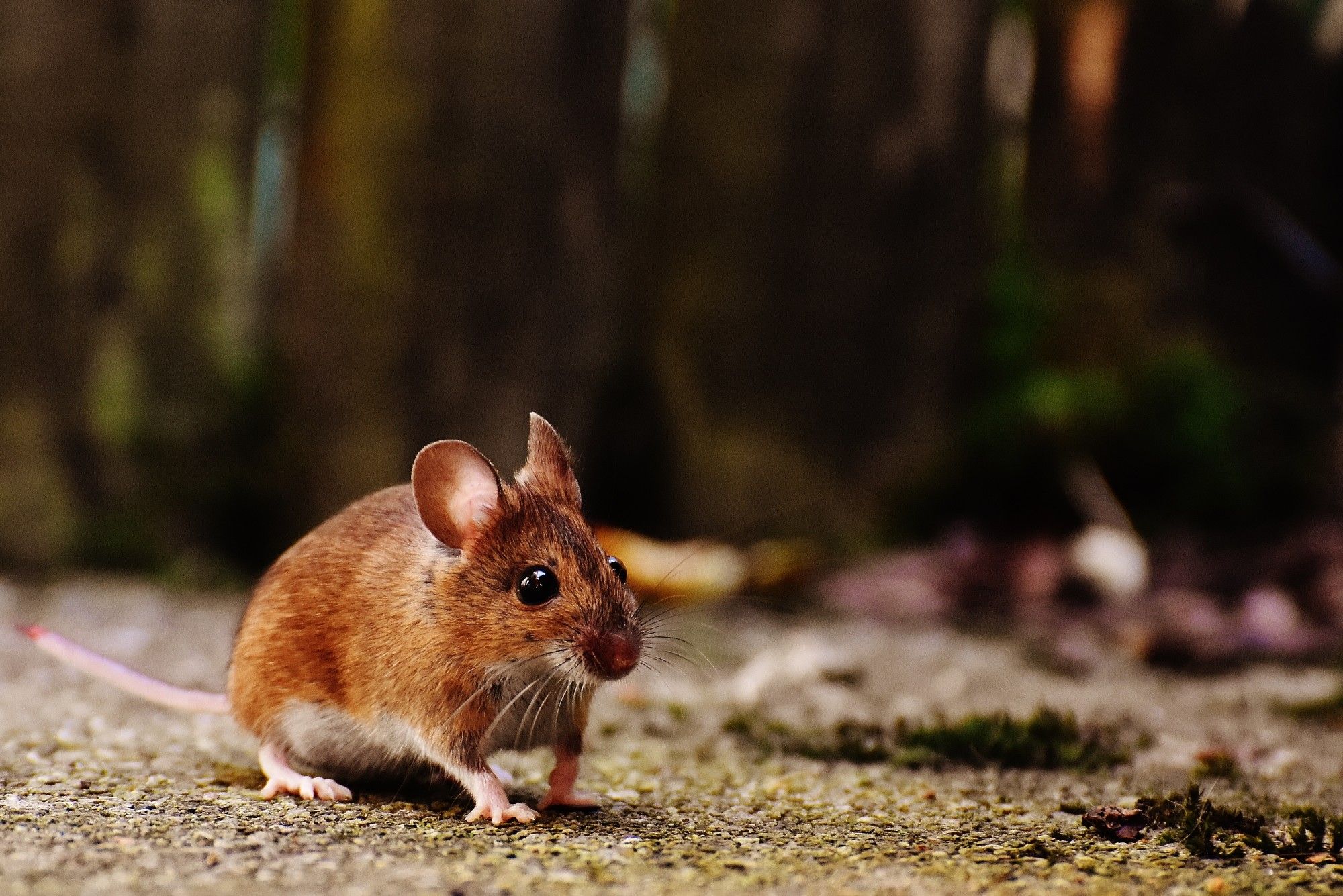Dealing with a rat infestation can be a nightmare for homeowners. These pesky rodents can wreak havoc on your property, causing damage to your home, utility lines, and even your car engine wiring. Moreover, they pose significant health risks and can be unpleasant to deal with. If you're struggling with a rat problem, you're not alone, and there are effective solutions available.
In this comprehensive guide, we'll explore the world of rat repellent, focusing on natural and safe ways to repel rats and keep your property rodent-free.
Understanding the Rat Problem
Rats are highly effective pests when it comes to accessing your property. They can find entry points that you might not even be aware of, and once they're in, they create nests and start chewing on everything from walls to electrical wires.
This can lead to significant damage and costly repairs. To make matters worse, rats are known for their fast breeding, making it crucial to address a rat infestation promptly and effectively.
The Dangers of Chemical Solutions
Before diving into natural rat-repellent methods, it's essential to understand the potential downsides of using chemical-based pest control solutions. Many traditional rat repellents contain toxic chemicals that not only pose risks to rats but also to other animals, including pets, and even humans.
Using such chemicals outdoors can have adverse effects on the environment, affecting plants and wildlife. Additionally, the strong smell of chemical repellents can be unpleasant and linger for an extended period.
A Natural Approach: Peppermint Oil Rodent Repellent
One highly effective and safe natural ingredient for repelling rats is peppermint oil. Rats have a strong sense of smell, and the scent of peppermint oil is something they can't stand. To create your peppermint oil rodent repellent, follow these simple steps:
Gather Your Materials:
You'll need peppermint oil, cotton balls, and gloves for this DIY solution.
Soak the Cotton Balls:
Wearing gloves, soak several cotton balls in peppermint oil. Make sure they're well-saturated.
Place the Cotton Balls: Locate potential rat entry points and areas where they've been active. Place the peppermint oil-soaked cotton balls in these areas.
Reapply as Needed: The scent of peppermint oil will deter rats, but it may wear off over time. Reapply the cotton balls as necessary to maintain the repellent effect.
The combination of the strong peppermint smell and the natural approach makes this technique highly effective at repelling rats without harming them or the environment.
Other Natural Rat Repellent Solutions
Peppermint oil is just one of the many natural ingredients that can effectively repel rats. Essential oils like cinnamon oil and a spray foam made from natural ingredients can also be used to protect engine wiring and prevent nesting in various areas of your property.
These natural solutions are not only safe but also eco-friendly, making them a preferred choice for many homeowners.
Protecting Your Property and Health
In addition to using natural rat-repellent methods, it's essential to take proactive steps to prevent rat access to your property. Seal any cracks or holes in your walls, utility lines, and property perimeter to stop rodents from finding entry points.
Regularly inspect and maintain your property to ensure that rats don't have the opportunity to create nests or chew on essential components.

What is rat repellent?
Rat repellents are products that are used to deter or repel rodents from entering your property, gardens, and homes. There are a variety of rat repellents available on the market today including both natural and chemical types.
Natural rat repellent methods can include using predator urine such as fox, wolf, or coyote saliva, which can be sprayed around the perimeter of your house or garden to make it look like another animal is already inhabiting the area. You could also use deterrents like bird netting stretched across entry points, as well as mothballs placed in strategic spots like under porches and stairs; although moths cannot detect odors either some rats may be deterred by their strong smell. Other common ingredients used in homemade natural remedies are peppermint oil and garlic powder—both have been said to keep pesky critters away.
Chemical rat repellent products work mostly through taste aversion techniques: when they come into contact with them they’re instantly turned off from visiting any area that has a trace of the product present- this makes them reluctant to return! The most common type on sale today is known as Ropella Traps which contain an ultrasonic sound frequency that only rodents can hear so it acts as a sort of ‘sonic fence’ driving rodents out rather than trapping them inside – However these should not be relied on upon solely for protection against rats since their effectiveness varies between areas/households due to other factors such as water sources nearby etc.
Also, many chemical compounds found in traditional baits aren't safe for human beings either so these must always be handled carefully and kept out of reach from children & pets etc…
Rat control is important for maintaining public health standards amongst other things but rest assured there's plenty you can do at home—by getting informed about rodent behavior plus researching how best to take preventative action such as pest-proofing (by blocking all potential access points) you'll enjoy peace of mind knowing that there's no need for rodenticides near your family & friends!
How does rat repellent work?
Rat repellents are products formulated to deter, discourage, and repel rats from entering or inhabiting an area. They work by creating a hostile environment for the animals that makes them feel uncomfortable or threatened.
The most common type of rat repellent is odor-based – meaning they contain odors that rats find unpleasant, such as those made from essential oils like citronella and peppermint. The scent must be strong enough to irritate a rat's sense of smell for it to be effective. In addition to this, some sprays also contain ingredients like garlic or chili pepper which can also cause the animal discomfort when inhaled.
In addition to these types of repellents, there are also electronic devices available on the market that emit small yet powerful bursts of ultrasonic sound waves designed specifically to disturb rodent infestations. These devices usually need to be plugged into an outlet for them to work properly and can easily cover large areas with their sound pulses (often reaching up to 2000 Sqft).
When using any sort of rat repellent you must combine various strategies for your efforts not only to be successful but more importantly - long-lasting! Key steps include eliminating food sources and potential hiding places around your home; sealing all possible entry points; trapping/removing existing rodents; and finally - using natural/chemical-based deterrents such as rat repellents (odor vs. sonic) as part of your control method alongside proper sanitation habits daily!
Is rat repellent safe for pets and children?
When it comes to rat repellent, safety is paramount. Fortunately, the vast majority of products on the market today are formulated with non-toxic ingredients that pose no danger to humans or domestic animals – including cats and dogs – when used properly according to manufacturers’ instructions. That said, there is always a chance of accidental ingestion or contact with eyes and skin due to curious children or pets; so it's important to take appropriate precautions when using any type of pest control product around kids and animals.
The most effective rat repellents are those that contain natural ingredients such as peppermint oil, castor oil, clove oil, citronella oil, garlic extract, or capsaicin (the active ingredient in chili peppers). These natural compounds provide an offensive odor for rats while remaining safe for humans and pets. When using these types of products around your home or yard be sure to observe the manufacturer’s recommended application procedures as some may require dilution before use depending on where you plan on applying them – such as in garden beds or under decks.
Additionally, ensure that areas treated with these solutions remain sealed off from young children and pets until after the plants have dried completely following treatment.
For more extreme infestations it may be necessary to employ certain chemical rodenticides which may be toxic if ingested by animals or people despite their generally low toxicity levels once applied properly; so talk with a licensed pest professional about what would work best for your specific situation before taking matters into your own hands. Ultimately though whichever product you decide upon will depend largely upon how severe the problem has become and whether you require immediate relief from a larger-scale infestation - but rest assured no matter what this is almost always something that can be done safely without putting people (especially kids) at risk!
How effective is rat repellent?
Rat repellents are an effective way to get rid of rats by preventing and controlling rat infestations. While the effectiveness is largely dependent on the product used, several studies have reported that certain types of repellent can be successful in reducing or eliminating rat populations.
The most commonly used type of rat repellent takes advantage of scent-based methods, such as those that use peppermint oil extract to create a smell that rats find undesirable and avoid. These products usually also contain other chemicals with strong odors, such as cinnamon oils, castor oil extracts, or citronella oils, so they can try to mask any potential smells coming from food sources in a given area. Studies have shown that these types of scented products can drastically reduce the number of rats visiting areas treated with them for up to six weeks after application.
Ultrasonic devices are another type of deterrent device thought to be effective at keeping rats away from homes and businesses without harming them in any way. Ultrasound waves emitted by these devices may cause discomfort for rodents when they enter an area protected by the device – often prompting them to turn back before entering your home or business space. Though this method has been found promising in lab tests, field trials typically report variable success rates depending on factors like placement and local rodent population density levels in your specific environment.
In general, though, research suggests that a well-rounded approach – using both scented deterrents as well as ultrasonic noise emitters – might potentially optimize results when it comes to keeping rodents away from an area or even reducing existing infestations significantly over time if consistently maintained over weeks and months.
Can rat repellent be used indoors?
The short answer is yes, you can use rat repellent indoors. Rat repellents generally come in two basic forms: ultrasonic sound repellers or chemical sprays. While both of these are effective, there are several important considerations to keep in mind when using them indoors.
Ultrasonic sound repellers emit a high-frequency sound wave that is undetectable by humans but very irritating to rats and other rodents. These systems are often the preferred option as they don’t require chemicals and cannot be smelled by people since the frequency falls outside our range. However, most ultrasonic devices will not effectively repel mice and rats from an entire room; instead, they need to be placed strategically around specific points of entry or areas where activity has been seen (such as near walls or baseboards). Therefore it can take some experimentation before finding the right combination of positioning and coverage for your specific home/area needs.
Chemical sprays such as those containing capsaicin (a pepper derivative) also work well but have their own set of limitations when used inside a living environment. Firstly, unless your house has excellent ventilation – you may experience a strong odor that could linger for days after application which many people find unpleasant - especially if someone in the household suffers from asthma or another respiratory condition. Secondly, this type of spray typically needs multiple applications over time to remain effective - requiring consistent monitoring and re-application if needed on an ongoing basis until all possible points of entry have been sealed off securely against future intrusions.
Ultimately it’s up to you whether or not using rat repellent indoors works out better than more traditional methods like traps & bait systems - However, one thing remains true: any form of rodent control must involve thoroughly identifying potential sources & sealing up access points wherever possible for it to be truly effective over time!

Rat repellent is a critical tool in the fight against rat infestations. Using natural and safe methods like peppermint oil rodent repellent can effectively repel rats while protecting your property and the environment. By avoiding toxic chemicals and taking a proactive approach to pest control, you can eliminate rats from your surroundings and enjoy a rat-free home.
Don't let rats wreak havoc on your property any longer. Try natural rat-repellent solutions and regain control of your environment while keeping your family, pets, and the ecosystem safe. Say goodbye to the rat problem and hello to a rat-free home!












